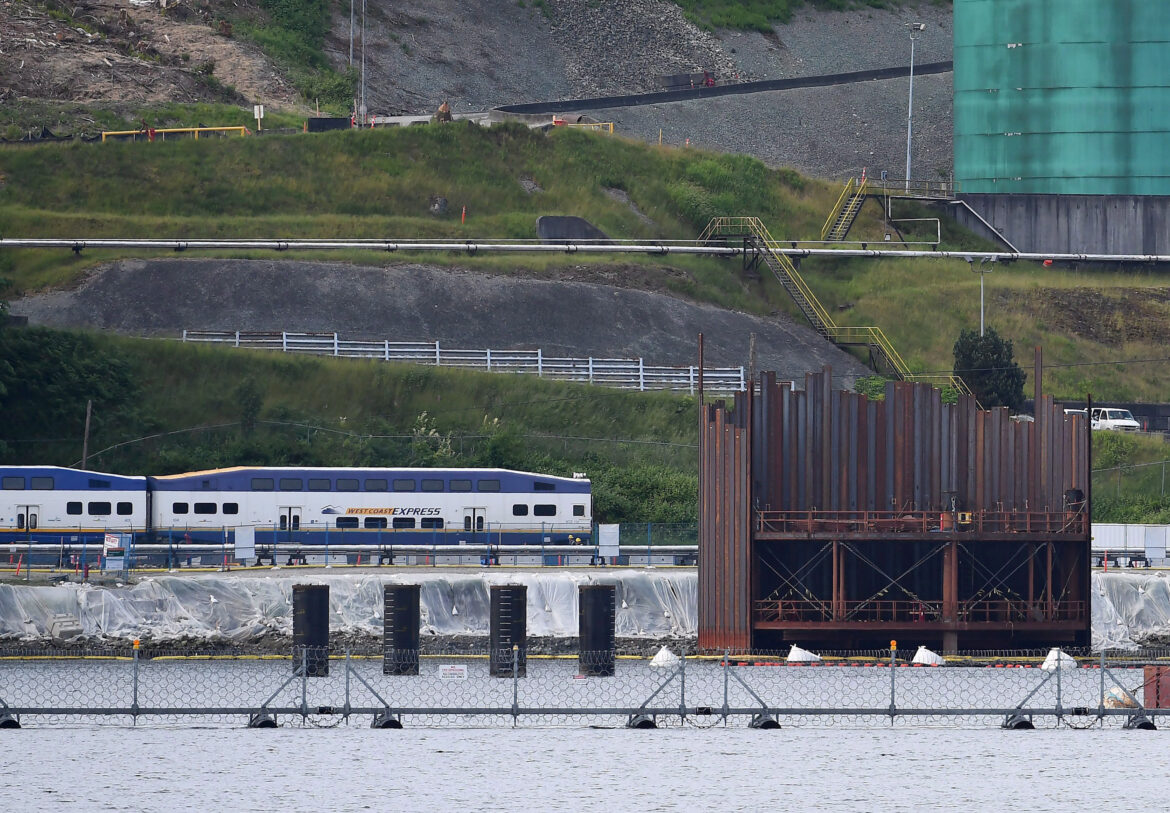Rail commuters in British Columbia’s Lower Mainland must find alternative transportation after Canada’s two major railways locked out workers in their first-ever simultaneous stoppage.
Premier David Eby called the stoppage “terrible news,” both for the families of locked-out railworkers and those whose commutes and industries were affected.
Bargaining between railworkers and Canadian National Railway and Canadian Pacific Kansas City broke off shortly before a midnight deadline.
Negotiations have since resumed with the Teamsters Canada Rail Conference union.
The countrywide impasse has affected upwards of 32,000 commuters in Toronto, Montreal and Vancouver, whose lines run on CPKC-owned tracks.
Passenger trains, including the West Coast Express, cannot roll along those rails without the locked-out traffic controllers to dispatch them.
A bulletin from TransLink, Metro Vancouver’s transportation network, said Thursday that service on the West Coast Express had been suspended, and it had arranged supplemental bus service during the stoppage.
The West Coast Express serves communities between Vancouver and Mission, about 67 kilometres to the east, with stops in the Maple Ridge, Pitt Meadows and Coquitlam areas.
TransLink said in a statement that the bus service went well during the morning commute, although they didn’t say how many people used it. It said more than 3,000 customers used the West Coast Express each weekday.
Eby told an unrelated news conference Thursday there had been “massive knock on effects” from the stoppage for a range of people who rely on rail services, from farmers in the Prairies to commuters who use the West Coast Express.
Eby said “the word devastating is probably and understatement,” and he urged the companies to sit down with the workers “sincerely” to resolve the stoppage and get trains moving while talks continued.
University of British Columbia professor emeritus Trevor Heaver, who specializes in transportation, said Metro Vancouver drivers should be prepared for busier road conditions.
“Vancouver, like other city centres, has got problems with congestion, and this can only make it worse,” said Heaver.
“Putting more cars on the road is not what we want to see,” he said, although alternatives were “fairly limited.”
Public transit advocates in Vancouver, Montreal and Toronto issued a joint statement saying the stoppage showed rail users were “at the mercy of freight transportation” in Canada.
The statement from Trajectoire Québec, TTCriders and Movement: Metro Vancouver Transit Riders said public transit users were paying for a situation out of their control.
It said the stoppage would encourage more transit riders to use cars to get to work and affect public confidence in the reliability of commuter trains, which they described as “fragile.”
“This situation is unacceptable in the context of growing congestion and a climate crisis,” the statement said.
Heaver said grain farmers in Western Canada would be also “significantly affected” as they head into the peak time for grain exports.
“A significant proportion of Western grain is exported through the Port of Vancouver and is entirely dependent upon rail movement,” said Heaver.
It would take some time for grain farmers to recover from built-up costs of the stoppage even after it was settled, Heaver added.
Groups representing other industries also expressed concern.
Blair Qualey, president and CEO of the New Car Dealers Association of BC, said his group was joining other business associations across Canada to call on the federal government to step in to restart rail services that he said were “vital.”
Otherwise, they would struggle to keep their doors open amid the “very challenging situation.”
Qualey said in a statement that car dealers were already dealing with tight inventory and the rail stoppage would “turn the tap off.”
The president of the Greater Vancouver Board of Trade, Bridgitte Anderson, said every day of the stoppage “delivers another blow to people’s wallets,” endangering the livelihoods of business owners and employees.
Fiona Famulak, president of BC Chamber of Commerce, similarly said the group was “extremely disappointed” the parties haven’t been able to reach a deal.
She said a prolonged stoppage would be “untenable,” and further damage B.C.’s reputation as a reliable trading partner after job action at western ports last year.





